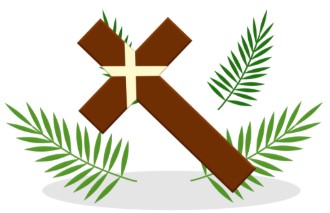Since the tragic events of September 11, many articles and commentaries have been written about terrorism, Islam, and the question of whether Muslims and Christians worship the same God. Some Christian leaders have felt the need to weigh in, often without understanding the Arabic language or context. The term Allah has especially been under scrutiny. Strangely, it seems that for some people, anything connected with Allah must automatically be demonized to help them feel righteous or justified.
Shortly after 9/11, on KFUO-AM Radio in St. Louis, well-known evangelical speaker Tim LaHaye, coauthor of the Left Behind series, made a bold statement: “Allah is not the God the Bible. He is an evil spirit that results in murder.” Considering such a claim, one has to ask whether Tim LaHaye — or others who speak similarly — are even familiar with the Arabic language. The answer is likely no.
Many Western Christians are unaware that Allah is the word Arabic-speaking Christians use for God. This isn’t a Muslim-only term. The Arabic Bible uses the word Allah from Genesis to Revelation. Jesus Christ is called the Son of Allah in Arabic translations of Scripture (John 3:16, Arabic Bible). Arabic-speaking Coptic, Roman Catholic, Orthodox, Maronite, Evangelical, and Reformed Christians all worship Allah. They use this word in worship services, prayers, and personal devotion. For them, Allah is simply the Arabic word for God. Islam does not own a copyright on this term. In fact, Arab Christians were calling upon Allah long before Islam ever existed.
Millions of Christians who worship Allah understand God very differently from Muslims. Their biblical understanding of Allah is not the same as the Qur’anic interpretation of Allah. To demean or demonize the word Allah in the West, as some have done, does significant harm to these believers. It not only insults them, but it also creates unnecessary barriers in conversations between Christians and Muslims. If Christians reject the word Allah outright, they unintentionally reject millions of fellow believers who faithfully use it.
It’s time for Christians to be careful in how they handle the term Allah, especially if they do not speak Arabic. No other common term exists in Arabic for the God of Christianity. Just as English-speaking Christians use “God” and French Christians use “Dieu” and Spanish Christians use “Dios,” so Arabic-speaking Christians use Allah.
In World magazine, Marvin Olasky also addressed the issue. He claimed that “Allah” is not the God of the Bible, suggesting that the Muslim understanding of Allah is flawed because it reflects merely human views of wisdom and compassion. But such statements oversimplify and confuse. The real issue is not whether “Allah” itself is the wrong word, but whether the concept of Allah within Islam matches the Christian understanding of God. These are two different discussions.
Throughout history, different groups have corrupted or misused the term “God.” For example, the Ku Klux Klan uses the term God while preaching hatred, yet English-speaking Christians haven’t stopped using the word “God” just because of this misuse. Terrorists and extremists misusing the term Allah shouldn’t prevent millions of Arabic-speaking Christians from using their own word for God. Words can be abused, but that doesn’t invalidate their proper meaning.
To make this point clearer: imagine someone claiming in English that “God is not the God of the Bible,” or worse, saying “God is a demonic force causing murder.” That would create immense confusion. Yet when Western Christians condemn Allah outright, that’s essentially what they’re saying in Arabic-speaking contexts. It leaves Arab Christians in a theological no-man’s land. How can they proclaim Christ if their term for God itself is being demonized? What term are they supposed to use? Western Christians wouldn’t abandon the term “God” after centuries of usage — nor should Arab Christians be expected to stop using Allah.
This careless dismissal of Allah by some Western voices risks alienating even Arabic-speaking Christians. It risks casting suspicion upon their faith. Worse, it damages relations with Muslims who might otherwise be open to hearing about Jesus Christ. The problem here is not theological, but linguistic.
It’s also worth noting that Arabic was one of the languages present at Pentecost, according to Acts 2:8–11. People heard the Gospel in their own native languages — and Arabic was one of them. Arabic’s use in worship predates the English language itself. Historically, Muhammad likely adopted the term Allah from Arabic-speaking Jews and Christians of his time. Linguists confirm that Allah comes from the same Semitic root as the Hebrew Elohim, which is the word for God throughout the Old Testament (Genesis 1:1). Both Eloh and Allah share a common linguistic ancestry.
Given this, Christians should exercise caution when discussing Islam. Critique Islamic beliefs where necessary, but don’t attack the word Allah itself. In Arabic translations of Scripture, John 1:1 reads: “In the beginning was the Word, and the Word was with Allah, and the Word was Allah” (John 1:1, Arabic Bible). Arabic-speaking Christians, faithful to biblical orthodoxy, can genuinely say, “Allah be praised.”
This is why Western Christians must reconsider how they speak about Allah. Words matter. God loves the world — including those who speak Arabic.
Cited Scripture References:
- John 3:16
- John 1:1
- Acts 2:8–11
- Genesis 1:1
